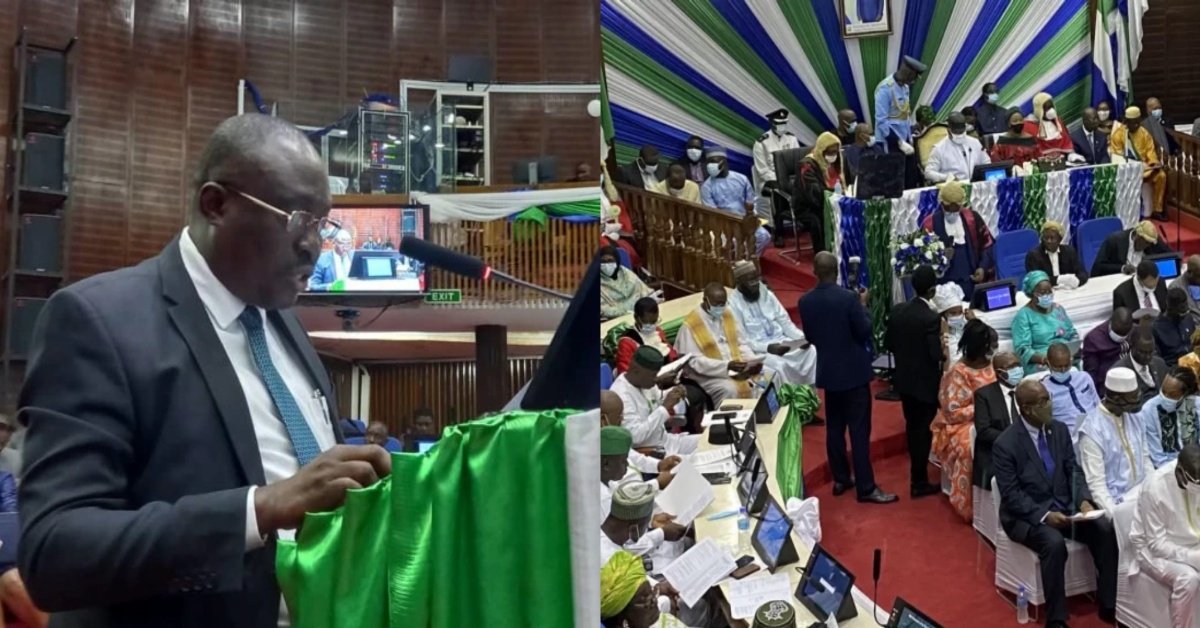Members of Sierra Leone’s Parliament has on Tuesday 19 July debated the National Security and Central Intelligence Act, 2022, which seeks to repeal and replace the 2002 National Security and Central Intelligence Act.
According to the Chief Minister, Jacob Jusu Saffa, the Act has been twenty years in existence and that it needed to be amended to meet up with recent trends, adding that a lot have changed in the last years with great emphasis on human security.
He said the proposed bill before the House sought to legitimize the existence of the critical National Security Council subcommittees such as the National Security Council Coordinating Goal (NSCCG), chiefdom security committees, joint committed committees, national tourism committee and transnational organised crime, among others, and to also widen the scope of participation in national security peace corp.
He said they have made provisions for more committees to be established in order to strengthen the security sector and also makes provisions for the strengthening of regulations of the Office of the National Security (ONS).
He stated that Parliamentarians should be there to provide oversight when issues arise at chiefdom levels hence the need for them to be included in the Chiefdom Committees.
He said there were many laws that should be used to capture criminals and that there was no need to make additional laws.
Chairman Parliamentary Committee on Defense, Hon. Sahr Juana, said the bill does not change anything but thus create room for tougher security measures and to meet modern security threats.
He said the chiefdoms will now be given the opportunity to be part and parcel of the security sector and that they should ensure to address the numerous social media rumours that are fake and also the long awaited Yenga issue which has been security threats for the country.
Hon. Aaron A. Koroma said Section 19 (1) of the 2002 Act provides for the regulation and licensing of private security companies, adding that security issue is not a political thing but a national one which requires the attention of all.
He said the bill seeks to transform a unit that has been under the Office of National security to a Central Security Agency.
He said the Central Security Unit (CESU) and ONS have been operating without an existing law but with the proposed bill, it will now empower them to carry out their functions.
He said the operation of the unit was first understandable but now that it was going to stand on its own, provisions for its own governance structures need to be made clear in the bill.
He said the issue of fire incident has been a serious one and has become a threat, and that in dealing with such threats the heads of the National Fire Force and Correctional Services should be considered and be included in both the district and chiefdom councils.
He said in the composition of the Chiefdom Security Council, MPs should be part of the committee and represent the nation at large, thus knowing the issues discussed whenever they sit.
He stated that all the agencies that have been created under an Act of parliament create space for a governing board, but the proposed bill before them did not make any provision of such for both the proposed agency and the Council.
He added that the appointment of the Director General and his/her deputy after appointment needs to be subjected to the approval of Parliament, but nothing as well was stated.
He said the appointment of other staff should be done by the Public Service Commission but that they were proposing to do it for themselves, leaving the Public Service Commission.











